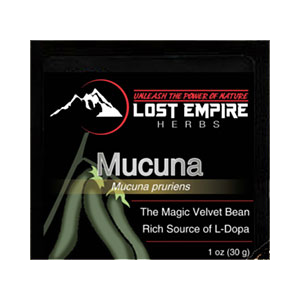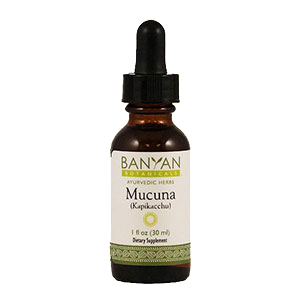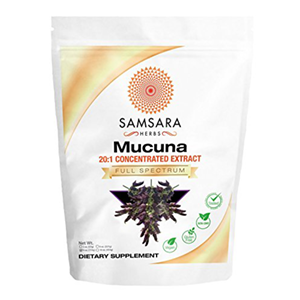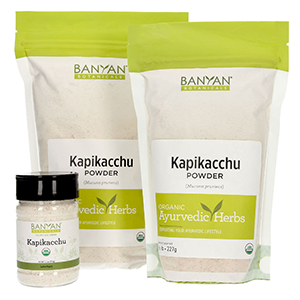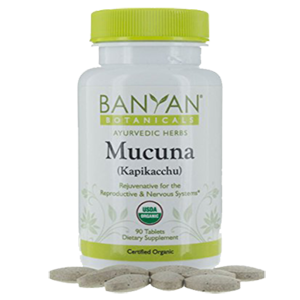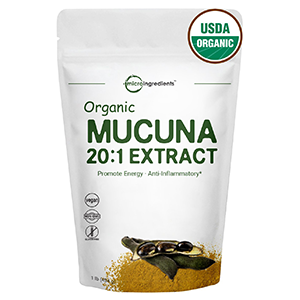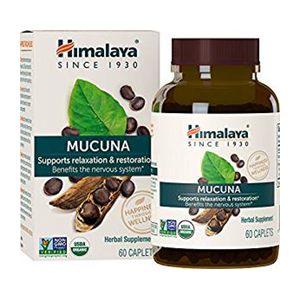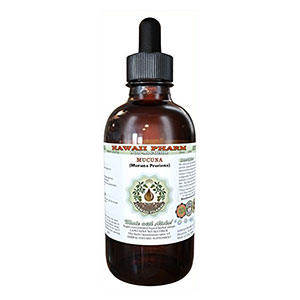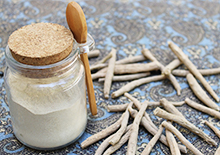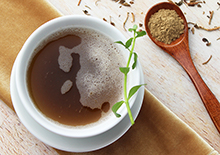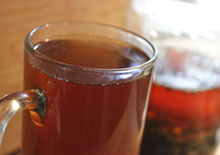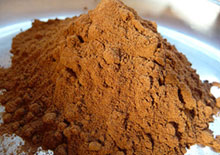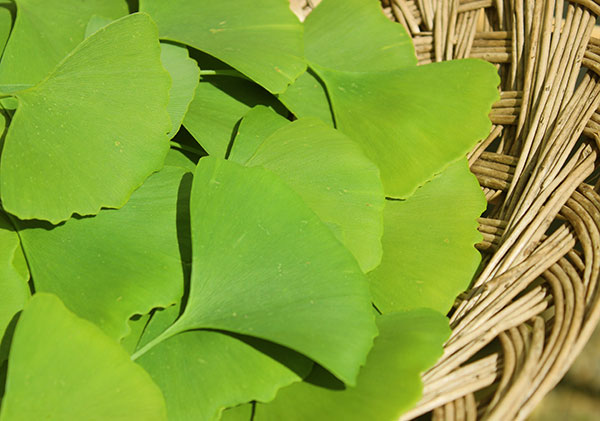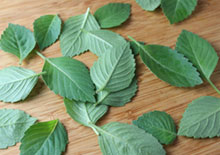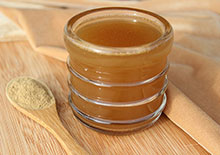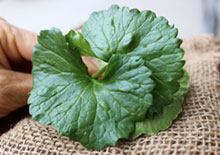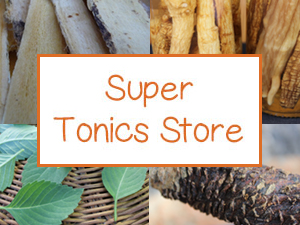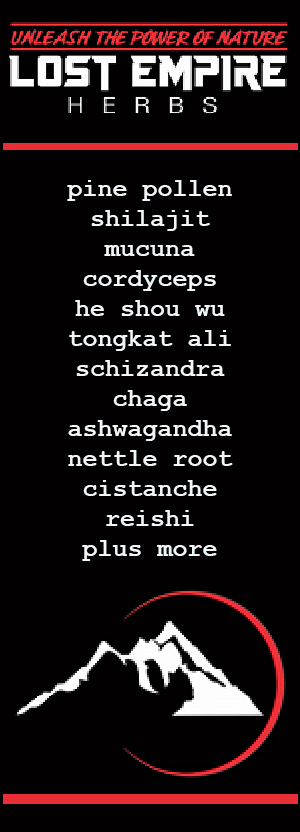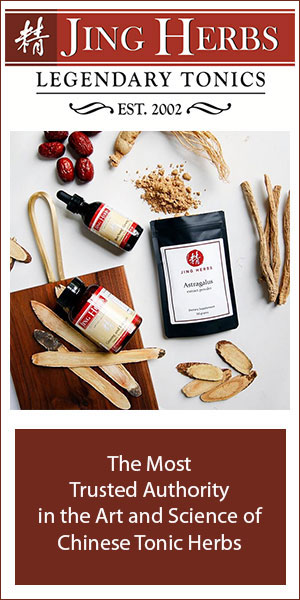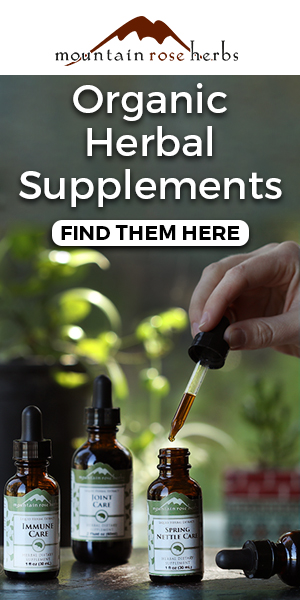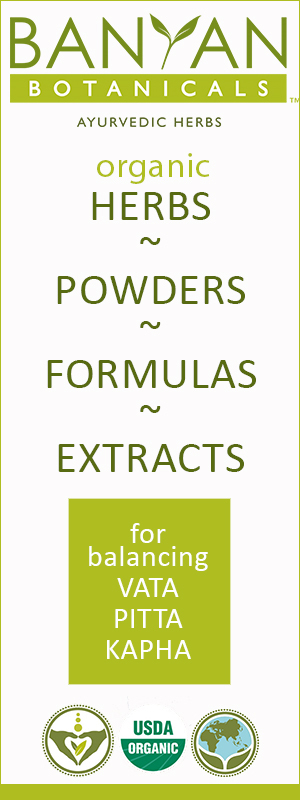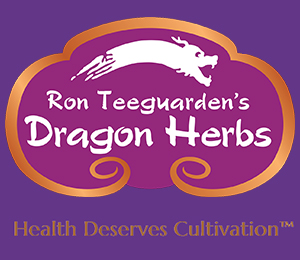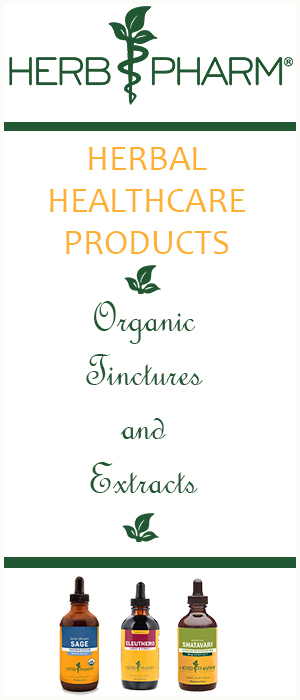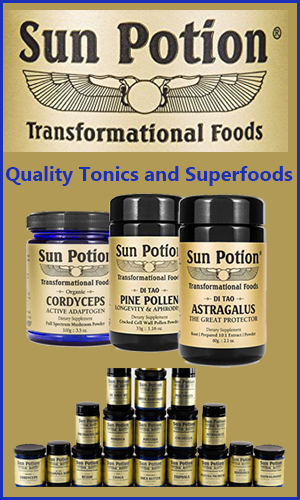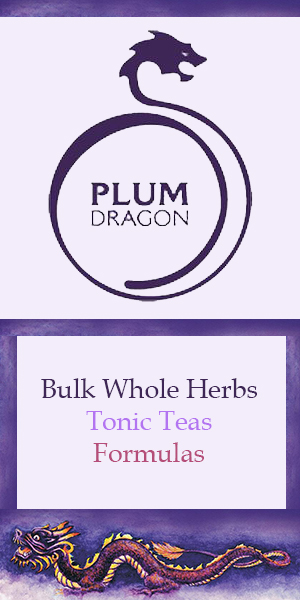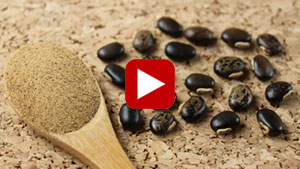- Home
- Ayurvedic Herbs
- Mucuna Pruriens Benefits
Mucuna Pruriens Benefits, The Ayurvedic Dopamine Bean
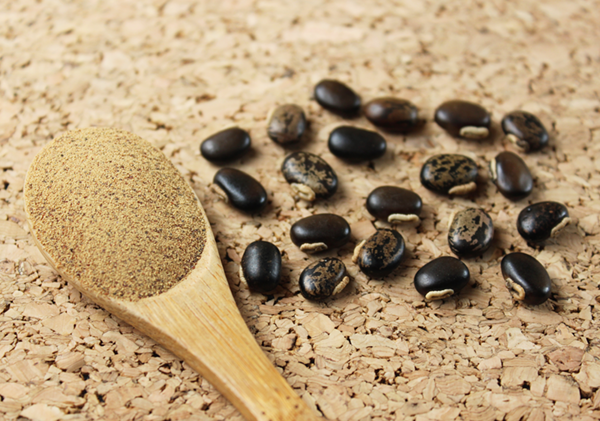
Mucuna pruriens is a well-known Ayurvedic herb used extensively in one of the oldest health care systems in the world, the traditional Indian medicine of Ayurveda.
As a highly valued rasayana or rejuvenating plant-based substance, it is acknowledged for its potential as both an aphrodisiac and nervine tonic. It has likewise been utilized therapeutically for centuries to provide balance to reproductive and nervous system functions.
Sometimes referred to as the "dopamine bean", it is also valued as a high-yielding source of L-DOPA or levodopa, a precursor to the mood-uplifting neurotransmitter dopamine.
What is Mucuna pruriens?
Though often called an "herb", mucuna is actually a type of legume commonly referred to as kapikacchu, but also goes by the names atmagupta, kawanch, cowhage and many others depending on the country and language.
The seeds or beans of the plant are the primary part used for medicinal purposes as a dietary supplement, frequently consumed as a tablet or a powder mixed into water, drinks or herbal preparations.
While there are many species in the genus Mucuna, Mucuna pruriens is considered to contain unique and concentrated constituents that make it the most medicinally therapeutic.
The plant is a fast-growing vine and member of the Fabaceae legume family. It is native to tropical and subtropical climates of India, Indonesia as well as Africa.
The speckled seeds or beans are coated either white to beige or a brown to black color. According to scientific research, both light and dark varieties have a similar composition with no significant differences identified. (*)
About 4 to 7 seeds grow inside a 2-3 inch (5-7 cm) long curved velvety
pod, hence the name "velvet bean." The hairs or bristles of these young
pods are known to cause intense irritation to the skin when touched.
Because
of its notable high protein content, about 23–35%, the beans have also
been utilized as a food source and cultivated as a minor food crop in
areas conductive to its growth. Interestingly, in Java Indonesia it is
sometimes fermented as a type of tempeh, called "tempe benguk." In
Central America, the beans are used as a non-caffeinated coffee substitute, known as
"nescafé."
According to the book "Rasayana", as a dietary food source mucuna beans are traditionally "soaked in water until they begin to sprout", then are boiled and ground into a paste to use when cooking. For medicinal preparations, the seeds are also boiled, commonly in milk, to remove the outer skin layer and embryo. The kernel is then strained, dried and powdered.
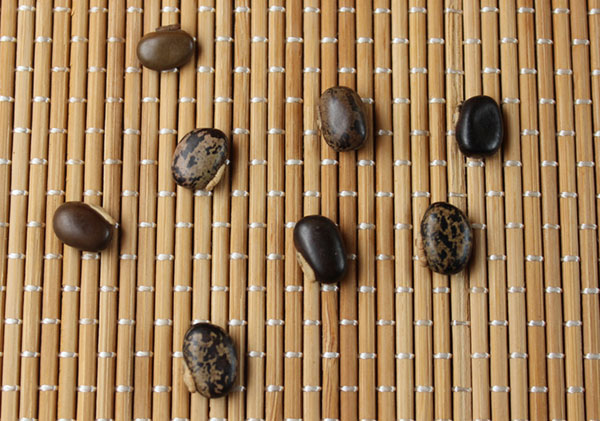
Mucuna Pruriens Benefits to Health
A Nervine Tonic, Supportive to the Nervous System
Mucuna pruriens is a nervine tonic helpful as an anxiety
reliever and can be calming to the nerves and uplifting to one's mood.
This is in part due to the fact that it's a naturally occurring source
of L-DOPA, which can support healthy levels of the neurotransmitter dopamine.
In Ayurveda, the oily heavy qualities of the mucuna bean are likewise well-known for nervous disorders, working specifically to nourish the nervous system and strengthen weakness.
Mucuna is available in supplement form either by itself or combined with other herbs or nervine tonics. It's restorative and energizing nature is traditionally used with other adaptogens and rasayana herbs often taken as a hot drink with honey, ghee and/or milk.
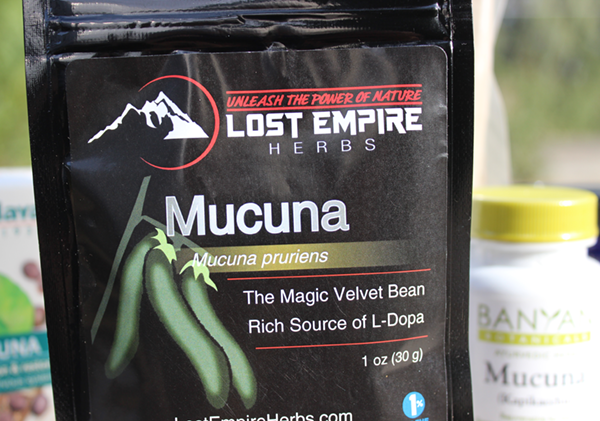
Research on Neuroprotective Qualities
M. pruriens, in some research, has also been identified to be a neuroprotective substance, and has demonstrated both anti-inflammatory and analgesic actions. (*)
In several studies conducted on mice, mucuna was also suggested as a potential "effective treatment for neurodegenerative diseases" (*) and water/alcohol extracts were demonstrated to have an "antidepressant action." (*)
Likewise, a 2017 reported study examining the brains of rats after a stroke, mucuna supplementation was shown to have "significant protection against brain damage compared with the negative control group."
Similar to lion’s mane mushroom and its impact on the brain, mucuna and its high L-DOPA content also facilitates neurotrophic factors which support the growth, survival and development of neurons or nerve cells in the brain and central nervous system.
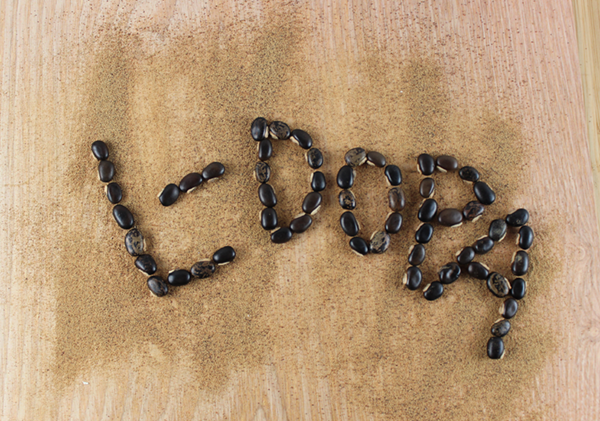
Contains L-DOPA, A Dopamine Neurotransmitter Precursor
As previously mentioned, mucuna is one of the highest natural sources of a unique amino acid called levodopa or L-DOPA, an important precursor to the neurotransmitter dopamine as well as adrenaline and noradrenaline.
Adequate levels of dopamine are essential for mental functions, emotional health, sleep, memory, motor skills and muscle coordination. Brain dopamine pathways are also similarly influential in regulating the release of various hormones.
Dopamine is also known to calm and relax the nervous system,
basically providing a shield or buffer that helps to "dope" up the body
against stress. It is often referred to as the "feel good hormone" and
can be naturally stimulated through various gratifying activities like
dancing, exercise and pleasurable sexual experiences.
Dietary
supplementation is also possible and can be particularly useful for those with low
levels, often associated with nervous system disorders. Dopamine in the
body is additionally depleted by stress as well as the over-use of
stimulants, drugs and alcohol.
Because L-DOPA-rich food sources, like mucuna, are known to increase dopamine concentrations in the brain and central nervous system, supplementation can help to boost L-DOPA needed to replenish dopamine deficiency, common in those recovering from adrenal burn-out and/or addictive substances.
Herbs, like mucuna, are best when used in conjunction with other Ayurvedic approaches which may also include modifying one's diet, lifestyle choices and activity levels.
The often suggested dose of mucuna supplementation is between ¼ to ½ teaspoon once or twice daily. Remember, however, that mucuna powder or tablets are not necessarily recommended for all people or constitutions. Some individuals in fact can be sensitive to it, especially in high doses, so it is best to experiment with low dose amounts if you are new to consuming it.
Mucuna pruriens Benefits and Parkinson's
In regard to its usefulness for those with neurodegenerative diseases, like PD, it is always best to consult with your medical physician or health care practitioner before attempting self-treatment through dietary supplementation.
Increased amounts of dopamine have been studied beneficial for age-related neurodegenerative disorders like Parkinson's, which is characterized by a gradual reduction and eventual absence of dopamine in the brain.
Because dopamine is necessary for healthy motor
skills and proper nerve functioning, lack of dopamine-secreting neurons,
specifically in the mid-section of the brain, can cause the muscles to
tense up and tremble rather than relax, leading to involuntary muscle
movements, classic symptoms of Parkinson's.
Unlike dopamine, L-DOPA (levodopa) can effectively cross the blood-brain barrier. Once in the brain, it is converted to dopamine by the enzyme DOPA decarboxylase through a process called decarboxylation.
Although there is currently no scientifically proven cure for Parkinson's, there are a number of levodopa-based pharmaceutical drugs helpful for boosting dopamine.
While these synthetic medications are considered the "gold standard" in drug-based assistance for Parkinson's, mucuna powder supplementation in some research is also viewed to have a favorable influence.
In 2017 double-blind published research on mucuna and PD, high-dose mucuna powder was shown to have similar clinical effects to that of levodopa alone at the same dose level, but provided a more "favorable tolerability profile." From our perspective, this might be due to that fact that Mucuna pruriens, when taken as a complete whole food, is easier for the body to synthesize and distribute efficiently.
Substantial amounts of L-DOPA are also found in other species of mucuna in addition to fava beans and cassia seeds. However, the Mucuna pruriens species is considered to hold the highest concentration. It is therefore the main plant-derived source of levadopa-based pharmaceuticals.
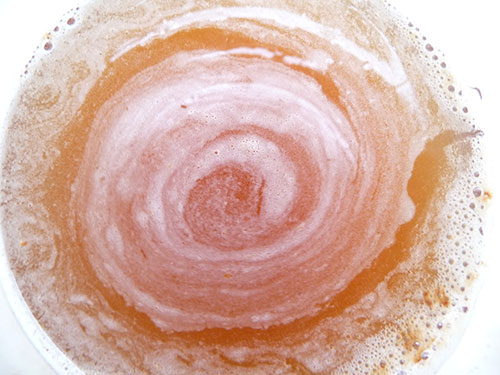
Mucuna Benefits as a Reproductive Tonic and Aphrodisiac
Mucuna pruriens benefits have long been acknowledged as a reproductive tonic in Ayurvedic medicine useful for enhancing procreative functions and boosting sex drive, it is categorized as an Ojas building substance that improves sexual vitality in both men and women.
Kapikacchu, as it is often called in Ayurveda, is also a common component used with other herbs like ashwagandha, shatavari or tribulus in libido-enhancing rejuvenation formulas.
While it has a well-established reputation as an aphrodisiac, it is also shown in some research to help regulate steroidogenesis (the formation of steroids), as well as increase the quality of sperm in infertile men through its hormone-influencing dopamine content. (*)
According to Chinese herbalism, mucuna is recognized as a "Jing" herb known to be highly rejuvenating to the reproductive system, cognitive functions and the kidney-adrenal complex.
Types of Mucuna
Mucuna seed comes in both light and dark variations. Often, most suppliers use a blend of both. Mucuna powders can be prepared as an extract, using different methods, or are simply produced as a ground seed powder.
We have found that some people can have adverse reactions such as gastrointestinal upset when using the straight legume powder, probably due to various trypsin inhibitors in the raw unprocessed beans. Liquid or powdered extracts subsequently may be a better option in such instances.

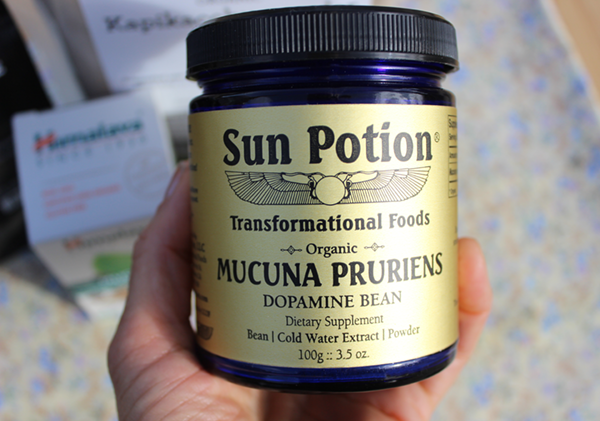
Favorite Recommended Organic Mucuna Suppliers
(Keep in mind, these product descriptions and ingredients used are based on 2018 information, and can be subject to change over time.)
Sun Potion - This is a powder created via a cold-water extraction process that is claimed to make its beneficial components more bio-available. It is standardized to 15% L-dopa content, grown in India and USDA Organic Certified.
Lost Empire Herbs - This is an organic full-spectrum bulk powdered extract prepared using a CO2 and hydroethanol dual extraction process. It is identified to contain 15.76% L-dopa content.
Banyan Botanicals - Offer a straight powder and tablet, created from the dried beans, as well as a liquid alcohol extract. Their kapikacchu is grown in India and is Certified Organic in accordance with the USDA's National Organic Program (NOP).
Hawaii Pharm - This is an alcohol-free liquid solution using organic mucuna made from infusing macerated seeds into vegetable palm glycerin and pure water.
Himalaya - A Certified Organic product in the form of compressed tablets. According to their label it contains both bean powder (350mg) and bean extract (250mg).
Samsara Herbs - Provide a 20:1 concentrated hot water extract of the bean, available in a bulk powder form. Their product in not officially organic but proposed to be "grown and processed without pesticides or chemicals."
Herbal Island - This is a full spectrum extract produced using a cold-water extraction process and is USDA Certified Organic. It is available in capsule form.
Paradise Herbs - This is a Certified Organic seed extract, in capsule form, made from dried ground beans, water and organic grain alcohol. It is advertised as a 10:1 concentrate.
How to Use
Powders or liquid extracts can be mixed with water or juices and blended into smoothies, tonic elixirs, teas and herbal preparations.
It can be traditionally prepared in warm milk with ghee or, as a vegan option, can be blended with nut milk or coconut kefir and coconut oil. We love to use with it with ashwagandha powder when making oja balls or ashwagandha milk.
Mucuna pruriens benefits have also been used as an ingredient with cacao in cacao recipes as well as coffee as it can help to balance the stimulating effects of these substances.
Mucuna Pruriens Dosage
Generally, somewhere between 1/4t-1/2t of
powder once or twice daily or 1-2 tablets/capsules is the recommended
dosage on most product labels. We recommended following the advised
amount unique to each brand as concentrations may differ considerably.
Often times it is additionally helpful to seek the advice of a qualified Ayurvedic practitioner, who can further evaluate therapeutic treatments according to your specific health issues.
Remember that dosage may likewise vary significantly from person to person, so it's best to start out small and build up to larger amounts if you are new to taking it.
It is also advised to take mucuna in cycles rather than on a consistent basis to prevent the body from adapting to it.
Precautions:
Always seek the advice of your medical physician or health care provider before taking mucuna as a dietary supplement if you have serious health conditions or are taking prescribed medications. It is often recommended to avoid it if you are pregnant, nursing or have acute congested conditions, like a cold or the flu. Mucuna is not well-tolerated by all people, so it is important to be aware if you are new to consuming it. Excessive amounts can cause nausea, fatigue and headaches.
Shop Related Products (About Affiliates & Amazon Associate Paid Links)
Affiliate Disclaimer: This section contains affiliate product links. If you make a purchase through one of our recommended links, we will receive a small commission at no additional cost to you. Thanks for the support!

